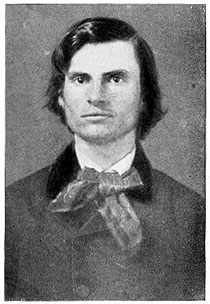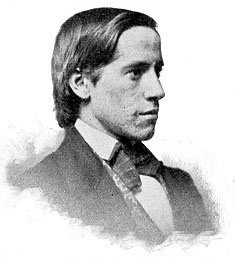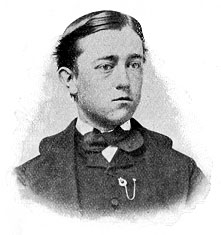
Henry M. Alden, 1857.
called a utilitarian, yet he was anxious to bring the truth "home to men's business and bosoms."
The generations of students who enjoyed the opportunities of this wonderful tuition, in which such large elements of insight and comprehension, of intellectual and moral sanity, appeared, were profoundly affected by it. To a great extent it determined the type of Williams student life. It was the dominating force in the college. Still it would scarcely be true to say that the revivalism of the preceding dispensation found no place among the effective forces of the new administration. Dr. Hopkins inherited almost none of it. So decisive was the bent of his personality, that it could not be very essentially modified, much less could it be practically subverted and turned from the natural channel of its development, by passing phases of religious experience.
With Professor Albert Hopkins the case was different. Though he did not equal his more famous brother in intellectual ability, though he possessed no unusual gifts as an instructor, he was the peer of any man of his generation in refined poetical intensity of religious genius. The fervor, the visionary eye and ear, the dramatic sensibility of the greater Hebrew seers, all reappeared in him. With such a temperament it could not well be otherwise than that he should inherit much from the foregoing era. In the main, these legacies were abundantly wholesome, but in one respect it must be confessed that they proved to be mischievous. They stimulated a morbid habit of introspection, as any one will see who reads Professor Hopkins's diary. Dr. Griffin could stand any amount of it. He could read his "Form of Self-Examination," which contained a long


Left: Horace E. Scudder 1858; Right: Hamilton W. Mabie, 1887.
-- page 172 --


